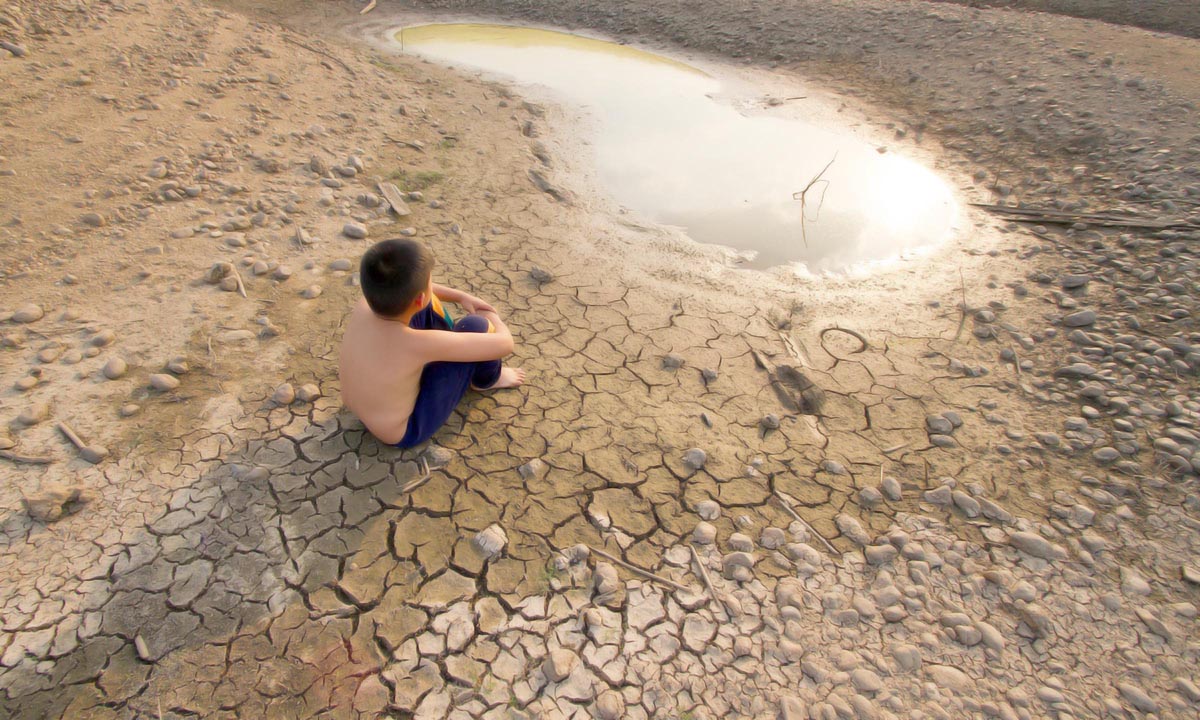Interaction Desk
In developing countries, such as Pakistan, climate change poses a serious challenge to social, environmental and economic development, and lead to migration within and across national borders of Pakistan. The effects of global climate change in Pakistan are already evident in the form of growing frequency of droughts, flooding, increasingly erratic weather behavior, and changes in agricultural patterns, reduction in fresh water supply and the loss of biodiversity. Mitigating and adapting actions are the two keyways of combating climate change. The more immediate and pressing task for the country is to prepare itself for adaptation to climate change. These policy measures are addressing issues in various sectors such as water, agriculture, forestry, coastal areas, biodiversity and other vulnerable ecosystems. Notwithstanding the fact that Pakistan’s contribution to global greenhouse gas (GHG) emissions is small, its role as a responsible member of the global community in combating climate change is dedicated by giving due importance to mitigation efforts in sectors such as energy, transport, forestry and agriculture. The Policy mentions its Updating after every five years span of time. Therefore, it has been updated in collaboration with UNDP, relevant Federal Ministries/Divisions and Provincial Departments. The implementation of National Climate Change Policy has been assessed, which shows landmark achievements gained by Ministry of Climate Change, Provincial line Departments in various development sectors i.e., agriculture, transport, energy, industries, forestry and biodiversity through adaptation and mitigation measures. Hundreds of Projects have been initiated by the federal government and provincial departments i.e., Ten Billion Tree Tsunami, Clean Green Pakistan Index, Ecosystem Restoration, Wash, Climate resilient Urban Development and Green Building Code are one of the major initiatives in addressing climate change in the country. Furthermore, the updated Policy document has been designed in accordance with the requirements of the Paris Agreement on climate change, Sustainable Development Goals and Sendai Framework for Disaster Risk Reduction. Hence, appropriate measures relating to disaster preparedness, capacity building, institutional strengthening; technology transfer and international cooperation have also been incorporated as important components of the policy. Most recently the Prime Minister in his speech at the ‘UN Climate Ambition Summit’ in December 2020 has set the direction of Pakistan’s pathway to decarbonizing the country’s economy. He declared that 60 percent of all energy produced in the country by 2030 will be ‘clean and through renewable resources, thirty percent of all the country’s passenger and heavy-duty vehicles will be electric vehicles and that Pakistan will no longer pursue imported coal power plants. These broad pronouncements in addition to a “Ten Billion Tree Tsunami Forestation Initiative” can provide the country’s roadmap for the achievement of NDCs emission reduction goals. The updated National Climate Change Policy 2021’s goal is to steer Pakistan towards climate resilient and low carbon development. Thus, it would provide a comprehensive framework for addressing the issues that Pakistan faces and will face in future due to changing climate. This policy document is a ‘living’ document and will be reviewed and updated regularly to address emerging concepts and issues in the ever-evolving science of climate change power plants. These broad pronouncements in addition to a “Ten Billion Tree Tsunami Forestation Initiative” can provide the country’s roadmap for the achievement of NDCs emission reduction goals. The updated National Climate Change Policy 2021’s goal is to steer Pakistan towards climate resilient and low carbon development. Thus, it would provide a comprehensive framework for addressing the issues that Pakistan faces and will face in future due to changing climate. This policy document is a ‘living’ document and will be reviewed and updated regularly to address emerging concepts and issues in the ever-evolving science of climate change.


